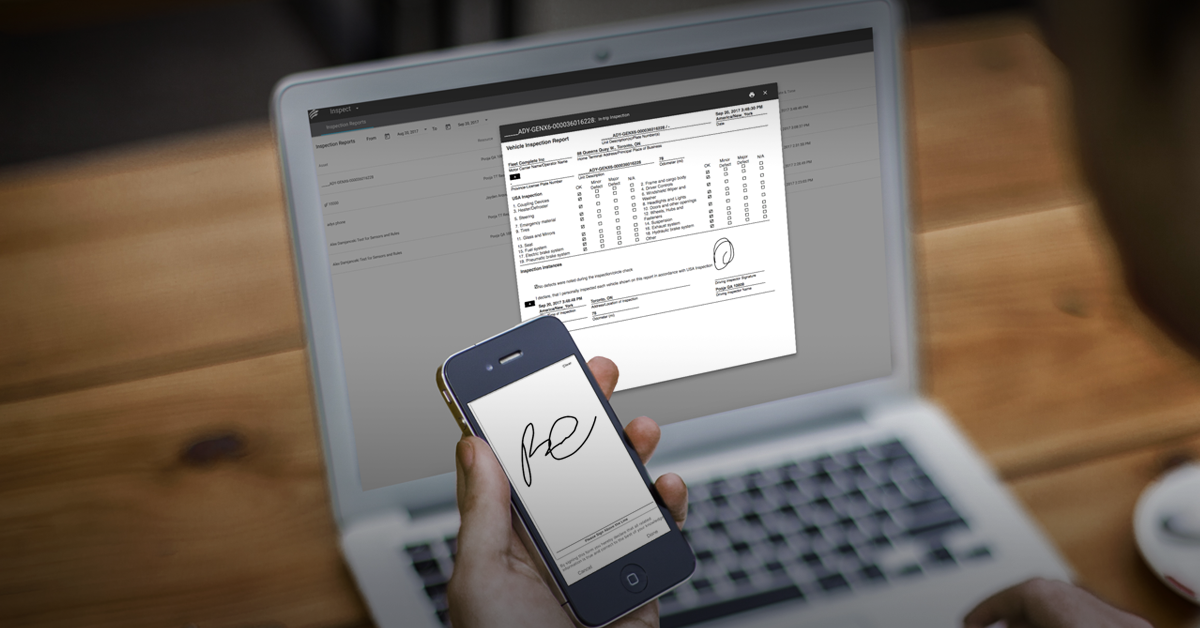When a vehicle breaks down, your problems are only just getting started. Immediately, that’s a journey disrupted, a driver unable to work, and expensive labour and parts. As if these things weren’t bad enough, a single instance of downtime can have serious knock-on effects.

Fleet managers will need to take time out of their day to manage expectations and organize a replacement vehicle. The customer is inconvenienced, and your fleet is one down, with another vehicle potentially taken off a job to replace it. Schedules are disrupted and customers are complaining—you can see how costs could soon add up.
It’s vital fleet managers do everything they can to prevent and manage downtime. This is where GPS fleet tracking can come in handy. Let’s take a closer look at the real cost of downtime for your fleet—as well as how to minimize the hit to your bottom line.
What’s the True Impact of Vehicle Downtime?
As Benjamin Franklin — a U.S. Founding Father and statesman — once said, “…in this world nothing can be said to be certain, except death and taxes”. We would also add “vehicle breakdowns” to that list. Out of all the things that could go wrong, a vehicle breaking down is inevitable—and part of being a good fleet manager is preparing for this.
“Many operators put the cost of having a vehicle off the road as being in the hundreds, if not thousands, of pounds per day. Therefore, it is surprising that many fleets aren’t taking more positive action to manage their exposure. It is almost a stealth cost,” says Mark Cartwright, head of vans and logistics buyers for the UK-based FTA.
Unscheduled repairs can be costly, denting your profits far more than scheduled maintenance will. This is why it’s important to invest in the latter to prevent unnecessary and expensive surprises. Managing this is always a challenge, but with the right know-how and tools, you can make the task much easier. Let’s take a look at the main problem areas.
1. Replacement Vehicle Costs
When a vehicle breaks down, you usually end up paying for two. Parts and labour are a given, but now, you’ll need to pay for the replacement: that’s additional petrol costs, a driver’s salary and potentially another job put on hold due to a temporary lack of resources.
2. Late Deliveries
Most customers are forgiving if a delivery is late just the once. But repeated lateness? That patience might start to wane. Plus, do you really want to be in a position where you’re apologizing to your customers?
Here are some problems late deliveries cause:
- Damaged brand reputation
- Negative word-of-mouth / bad online review
- Lowered customer retention
- Increase in customer support tasks
- Reduced revenue over time
3. Extra Pressure on Fleet Resources
When one vehicle is down, another needs to take its place—as well as a driver to operate said vehicle. This increases wear and tear: one unnecessary journey might not be a big deal, but after several breakdowns, over the course of several years, you can see how the costs can soon add up. There’s also additional pressure on fleet managers, who need to oversee replacements and amend schedules.
4. A Negative Impact on Productivity
Productivity is impacted if a driver can’t carry out their duties. With no vehicle to drive, they obviously can’t work. On the flip side, another driver may need to step in and deliver the goods, which means potentially taking them away from a different job.
Furthermore, fleet companies will need to pay both drivers for their time—and potentially overtime rates if the breakdown occurs at a particularly inconvenient moment.
3 Ways to Cut the Cost of Fleet Downtime
Having an awareness of costs is half the battle. While some downtime is inevitable, there are ways to minimize it.
1. Develop a Preventative Maintenance Schedule
Unscheduled maintenance often means jobs need to be cancelled. A preventative maintenance (PM) schedule is the best way to proactively manage your fleet’s health and resolve issues early on, reducing long-term downtime.
To get the most out of your PM schedule, use tech to accurately stay on top of things. Fleet management software can help you stick to your schedule, thanks to alerts and ready documentation at your fingertips.
Meanwhile, your drivers themselves can be trained to do vehicle walkarounds before each journey, helping them pick up on small issues before they snowball into bigger ones. Finally, make sure you establish a reporting process—so this info is passed on.
2. Establish a Vehicle Replacement Plan
There comes a time in every vehicle’s lifecycle when it costs more to operate than to scrap. Buying a new vehicle is a big expense, but the cumulative costs of running an old one soon add up once you factor in fuel inefficiency, breakdowns and repairs.
New vehicles are more fuel-efficient and break down less. Therefore, it pays to stay on top of this. Telematics can help you see which vehicles are in use, which ones are nearing the end of their life and those that soon need to be replaced.
3. Use GPS Fleet Tracking
A GPS vehicle tracker can record mileage travelled. Set up automatic notifications that alert you every time a set distance has been travelled, then use this data to schedule in your inspections.
When it comes to downtime costs, the biggest things to watch out for are organizational inefficiencies. To keep these costs as low as possible, communicate regularly across different teams and invest in technology that makes it easier to stay on top of the health of your fleet.
Fleet management systems are great tools for helping you manage schedules and vehicle repairs. Take one for a spin to see how it can help you reduce your vehicle downtime costs.




















